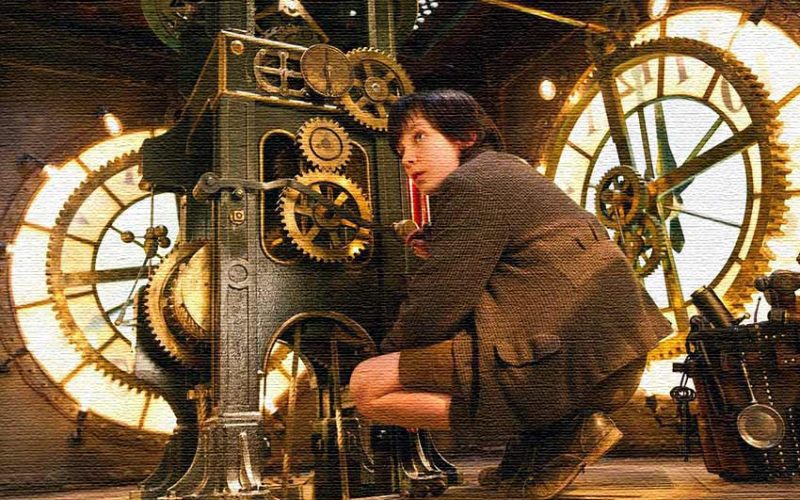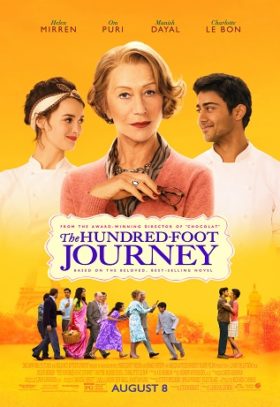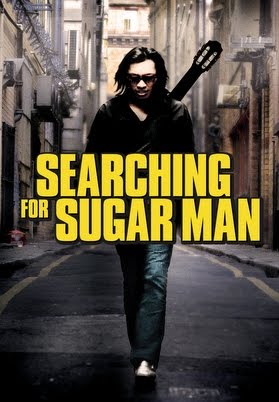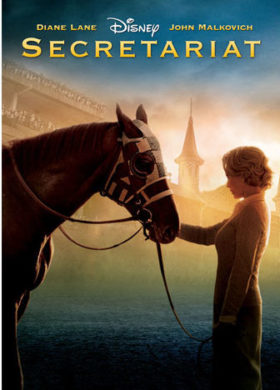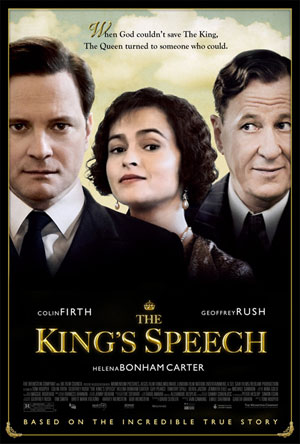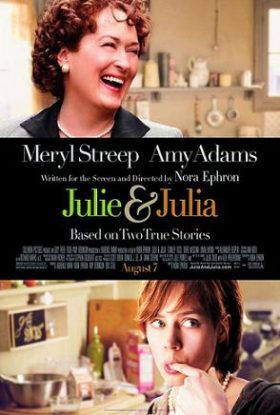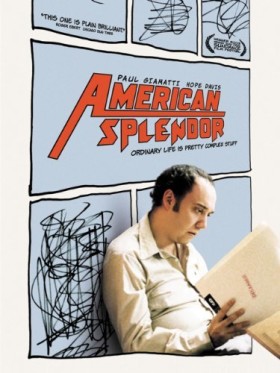Why do so few movies feature late-blooming adults? Malcolm Gladwell, in his famous New Yorker piece on the subject, writes
Genius, in the popular conception, is inextricably tied up with precocity—doing something truly creative, we’re inclined to think, requires the freshness and exuberance and energy of youth.
The popular conception is rubbish, but Hollywood worships at the altar of youth. That’s due to change. As of the last census, almost 50% of the U.S. was over age 45 and we have more disposable income.
When the industry does make a movie that celebrates later-in-life success, it almost always does well at the box office and during award season. Everyone craves these tales.
Here are eight great late-bloomer films for your viewing pleasure:
The Hundred-Foot Journey (2014)
The Kadam family own a popular Mumbai restaurant until insurgents bomb it during a political uprising. Mama Kadam is killed and the devastated family seeks asylum in France.
They settle in a small mountain village. Papa Kadam opens another restaurant and son Hassan, a budding culinary genius, takes over the kitchen.
Unfortunately, their property (the only available) sits just one hundred feet from a famous Michelin-starred restaurant owned by Madame Mallory (Helen Mirren, perfect as usual). The contest between the two is on.
What makes this an excellent late bloomer tale isn’t the romance, but Papa Kadam’s courage to start over despite tragedy, bigotry, and opposition. His passion for Indian cooking drives him and inspires his family to a better life.
Nominated: 2015 Golden Globe Best Actress in a Motion Picture, Helen Mirren (click the images to buy from Amazon).
Searching for Sugar Man (2012 Documentary)
In the late ’60s, two famous music producers discovered Rodriguez, a soulful singer of protest rock, at a Detroit bar. They had no doubt he would be the greatest recording artist of his generation.
But the albums bombed. Rodriguez returned to poverty and manual labor. One rumor said he committed suicide on stage. But somehow a bootleg recording got into South Africa and Rodriguez became the voice of the anti-apartheid movement. In South Africa, he was a star.
In the late ’90s, two South African fans set out to learn what actually happened to their hero. They found him, still living in Detroit. What follows will challenge everything you believe about failure, success, and the meaning of art.
Winner: 2013 Academy Award for Best Documentary.
Best Exotic Marigold Hotel (2011)
Evelyn (Judi Dench), a housewife who has never worked outside the house, discovers that her recently deceased husband left her insolvent. She must sell her beloved home to pay off his debts.
Desperate for a place to live but with little money, she joins a group of British pensioners who move to a retirement hotel in Jaipur.
Stately but dilapidated, the Best Exotic Marigold Hotel doesn’t quite live up to its marketing hype. But its charming manager Sonny (Dev Patel) loves it. He owns the hotel with two successful brothers. If he can’t turn a profit, they’ll raze the historic building.
Disappointed (and in a few cases, outraged) that they’d been “had,” the group does its best to adjust to life in India. Some come to share Sonny’s dream. Others act out.
Each character’s situation presents them with the choice to bloom in their colorful surroundings or not, with both poignant and hilarious outcomes.
Nominated: 2012 Golden Globe Best Motion Picture; 2012 Screen Actors Guild Oustanding Performance by a Cast.
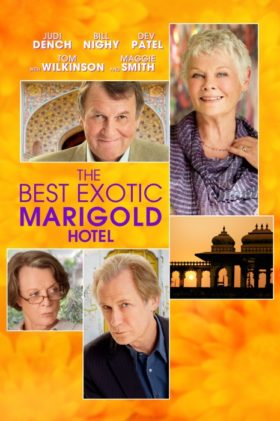 Hugo (2011)
Hugo (2011)
Don’t write off Hugo as a mere children’s movie. It’s about brilliant real-life French filmmaker Georges Melies, whose silent movies resembled fevered, fantastical dreams.
Melies experienced a series of financial setbacks, then World War I broke out. He watched the French army melt down his films for their celluloid, which they used in boot heels.
After the war, Pathé exercised a hostile takeover of Melies’ studio. He became a recluse and reluctant toymaker. That’s where fictional orphan Hugo Cabret steps in. This film’s ending will convince you to never let early dreams die.
Winner: 2012 AFI Movie of the Year.
Secretariat (2010)
As long as she could remember, Penny Chenery loved horses, something she inherited from her father, a thoroughbred breeder. But she did as expected for a woman of her time—marry her college sweetheart, raise four children, run a home.
When her father became ill, Penny defied those expectations and took over Meadow Stable, which had begun to falter without a director. She was 46, and no one believed in her.
But she believed in herself and her horses, even after her father died and family urged her to sell out. She oversaw the breeding of a gorgeous red pony named Secretariat, now considered one of the greatest thoroughbreds of all time.
The real Penny Chenery was born in 1922 and is still going strong. She makes a cameo as a spectator at the Belmont Stakes—a witness to her own stubborn success.
The King’s Speech (2010)
The King’s Speech swept the 2011 award season. Despite its royal subject, we can relate to the stuttering man who, at age 41, triumphed over that obstacle and stepped into his destiny.
And screenwriter David Seidler, at age 74, accepted the Oscar for Best Original Screenplay with the quip, “My father always said to me I’d be a late bloomer.” Find out why here.
Winner: 2011 Academy Award for Best Motion Picture and Best Original Screenplay.
Julie and Julia (2009)
How can you not love Julia Child? She was over 6′ of bonhomie, in love with food and with life. And she found it all at age 36 with her first meal in France. (I write more about her here.)
The movie follows Julia’s years in early-1950s Paris, based on her memoir. Meryl Streep plays her with affection and exuberance. Julie and Julia will fill you with passion for your own odyssey (and make you want to eat sinfully rich meals).
Nominated: Meryl Streep, 2010 Academy Award for Best Performance by an Actress in a Leading Role.
American Splendor (2003)
Harvey Pekar is both a graphic novel hero and a real person. He worked as a file clerk for Cleveland’s Veteran’s Administration Hospital his whole life.
But Harvey filled his personal life with a passion for jazz and underground comics, which his friend Robert Crumb (creator of Fritz the Cat) shared. He loved the idea of creating an “everyman” autobiographical comic book.
At age 37, after ten years thinking about it, Harvey wrote the first American Splendor installment, which Crumb illustrated. The film adaptation features Paul Giamatti as Harvey. It’s hilarious and poignant, better than Woody Allen.
Harvey died in 2010. His New York Times obit noted that he
…toiled for nearly 40 years as a file clerk in a Veterans Administration hospital, applied the brutally frank autobiographical style of Henry Miller to the comic-book format, creating a distinctive series of dispatches from an all-too-ordinary life.
Ordinary, no. He made his life his art.
Winner: 2004 AFI Movie of the Year.
From a housewife to a file clerk to a reluctant king, with a few unique paths in between, these movies feature late bloomers who defied expectations, overcame obstacles, and found passion.
Do you have a favorite among them? Did I miss one? I’d love to find some more late-bloomer movies!
